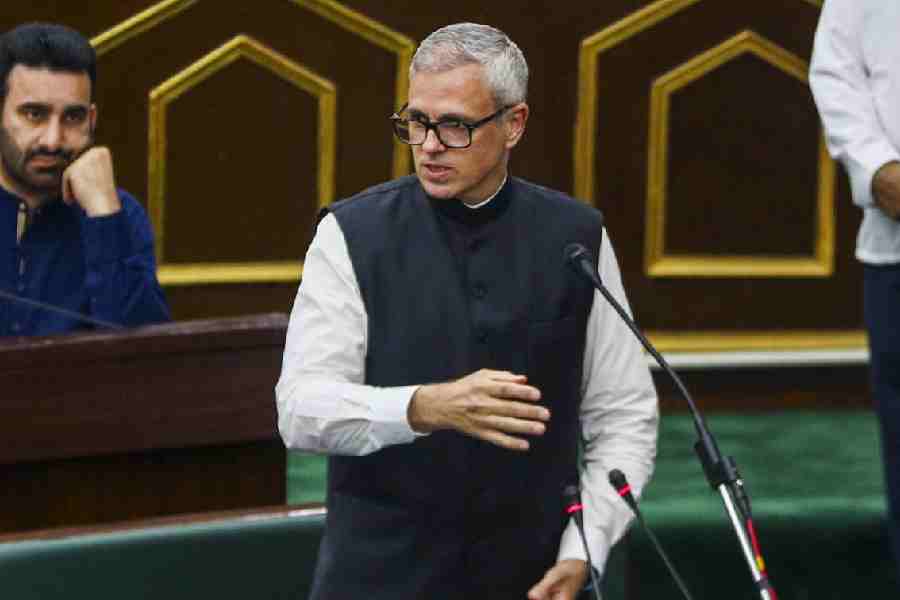The saffron ecosystem is apparently chuffed with the content of the speech delivered by the chief minister of Jammu and Kashmir, Omar Abdullah, at a special assembly session that had been convened to deliberate on the horrible massacre of tourists in Pahalgam. The fact that Mr Abdullah chose not to demand statehood for Kashmir on this solemn occasion and called out for justice has been interpreted by the right-wing ecosystem as an endeavour on the chief minister’s part to be aligned with the nationalist rhetoric. Yet, this is a reductive interpretation of Mr Abdullah’s stirring address. At a time when New India is witness to political addresses that are marked by chest-thumping or, alternatively, whataboutery, the chief minister’s remarks stand out on account of their embodiment of restraint, civility and, above all, empathy. Mr Abdullah demonstrated two traits that should be the hallmarks of all leaders but are, unfortunately, rare in today’s India. First and foremost, he took responsibility for a failure that is technically not his or his administration’s. Even though security arrangements lie outside the purview of Jammu and Kashmir’s elected government, Mr Abdullah made it a point to mention that as the host, he had failed to ensure that the tourists returned safely after visiting Kashmir. In a political culture where leaders are usually busy denying their failings or passing on the buck, Mr Abdullah’s receptivity to the principle of accountability is refreshing.
The other, equally important, aspect of Mr Abdullah’s speech pertains to his abhorrence for demanding political objectives given the sombre occasion. Going against public sentiment, he stated that this was not the time to talk about statehood. This civility, the desire not to milk a crisis for political ends, is decidedly uncharacteristic of the modern politician. It speaks of a sensitivity that should have been integral to Indian public life but is not. A call for solidarity also lay at the heart of Mr Abdullah’s address: he reiterated the fact that the people of Kashmir stand as one with the nation in this hour of grief. Only the people have the power to break the fangs of terror. What can enable the citizens to achieve this desirable goal is the unity that Mr Abdullah advocates, not the homogeneity that majoritarianism invokes.











